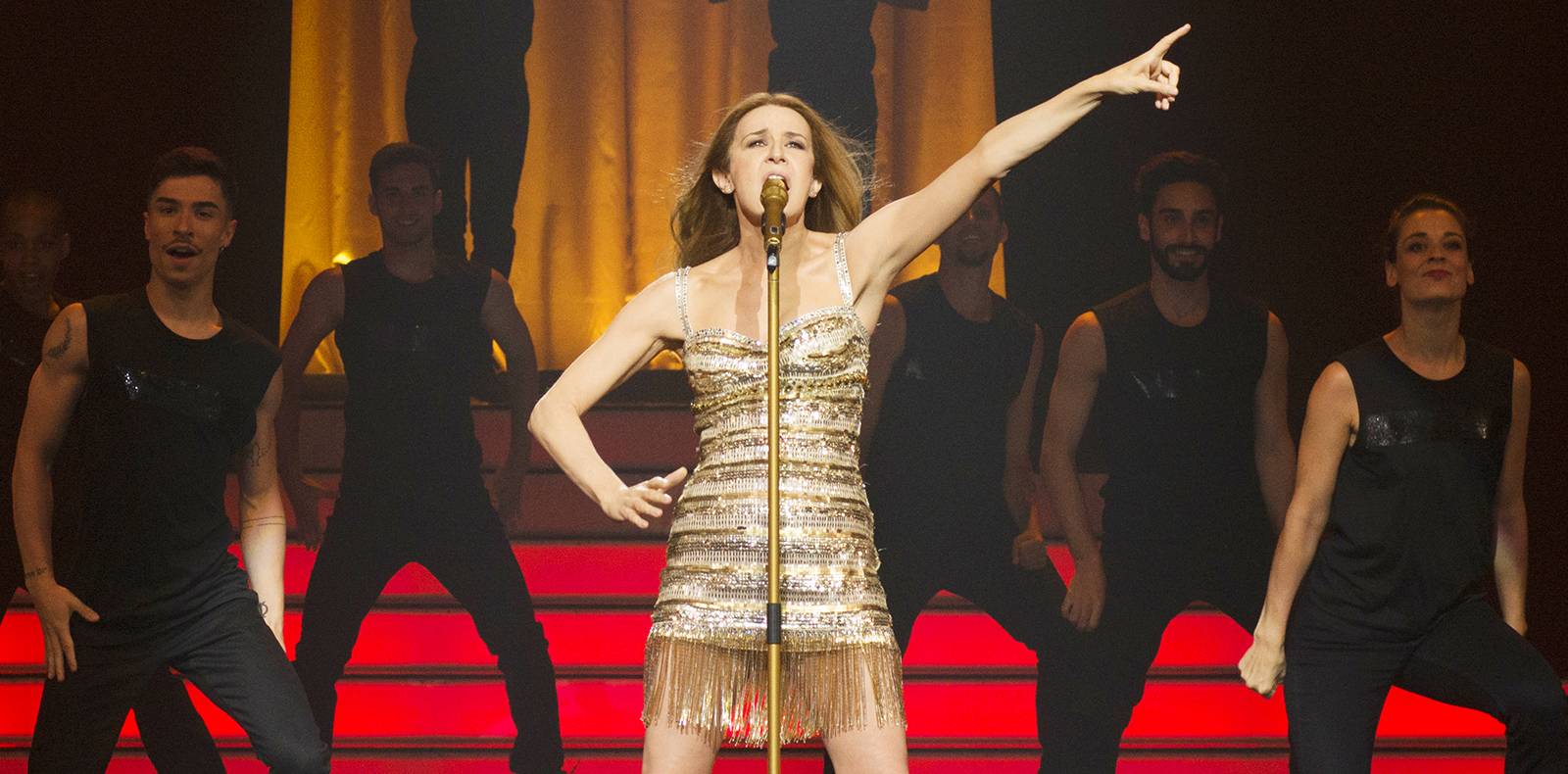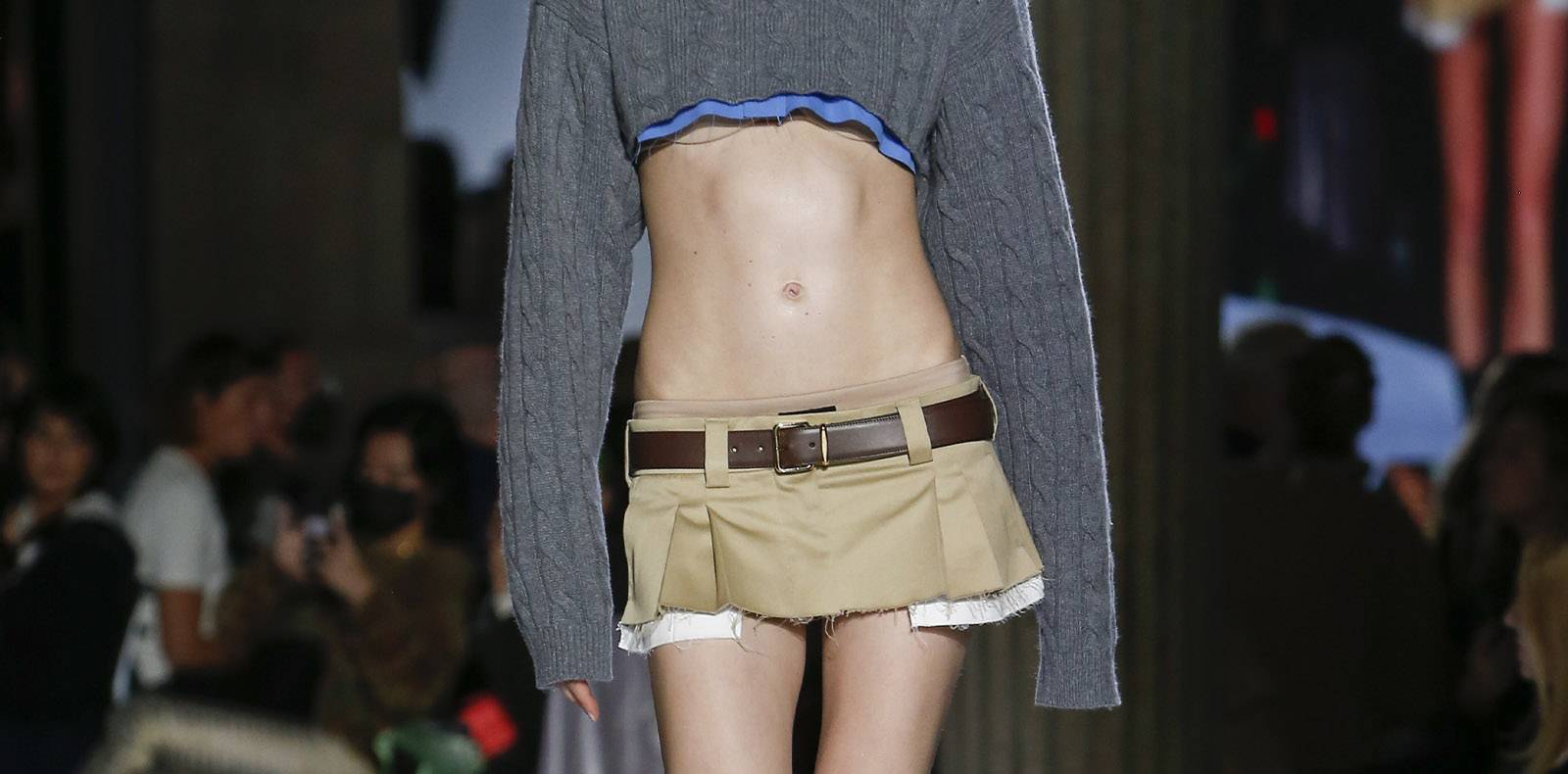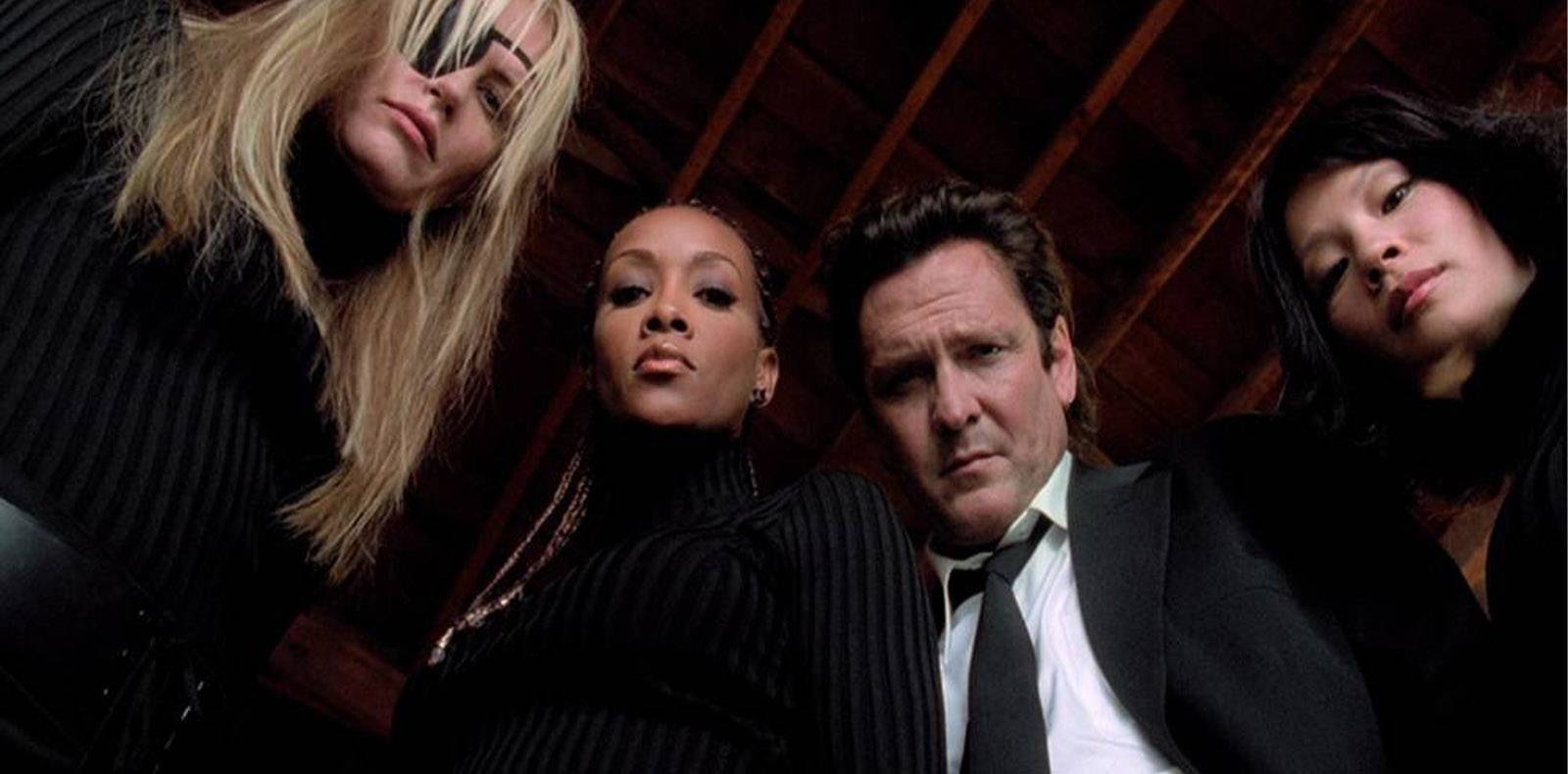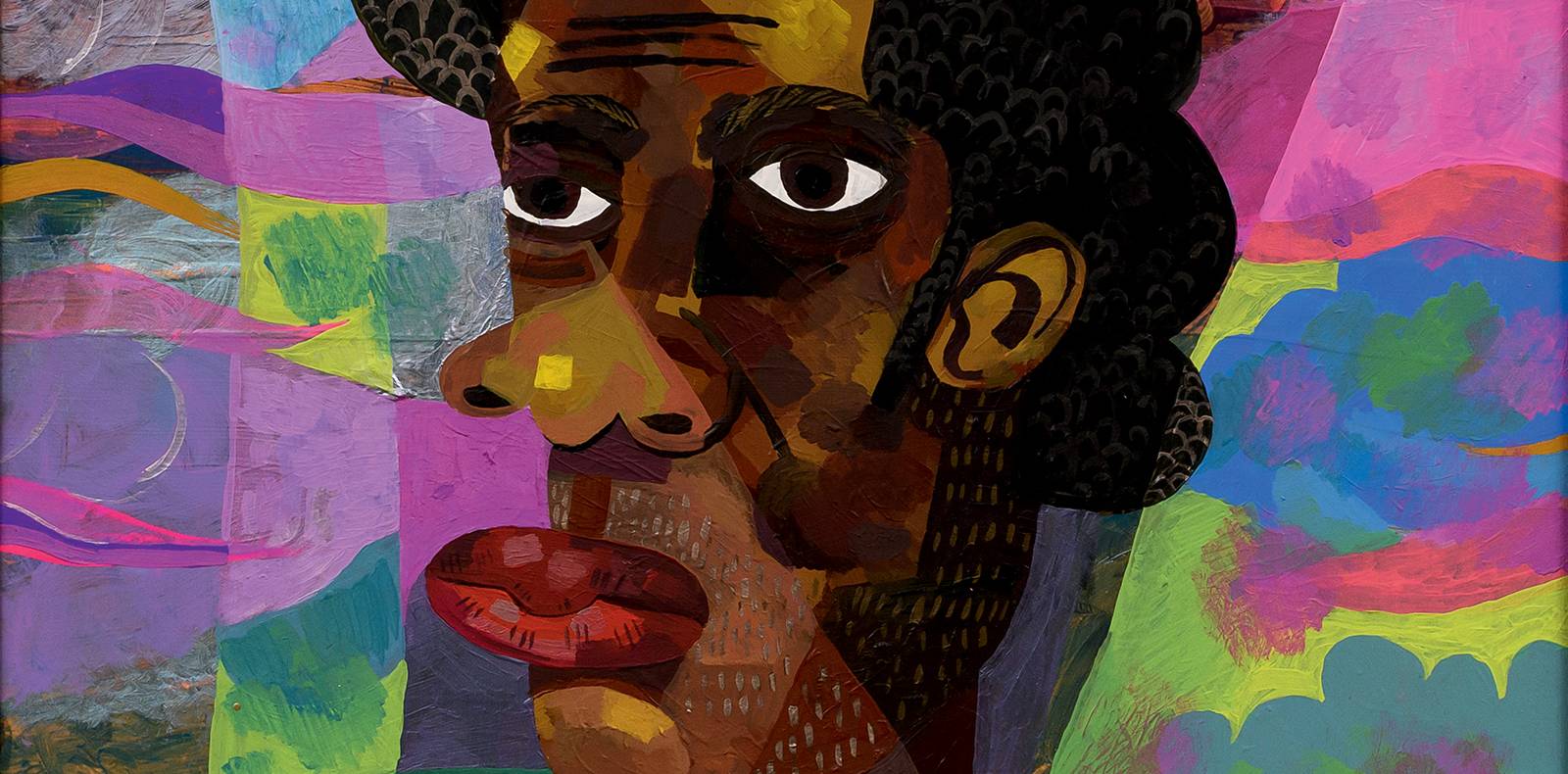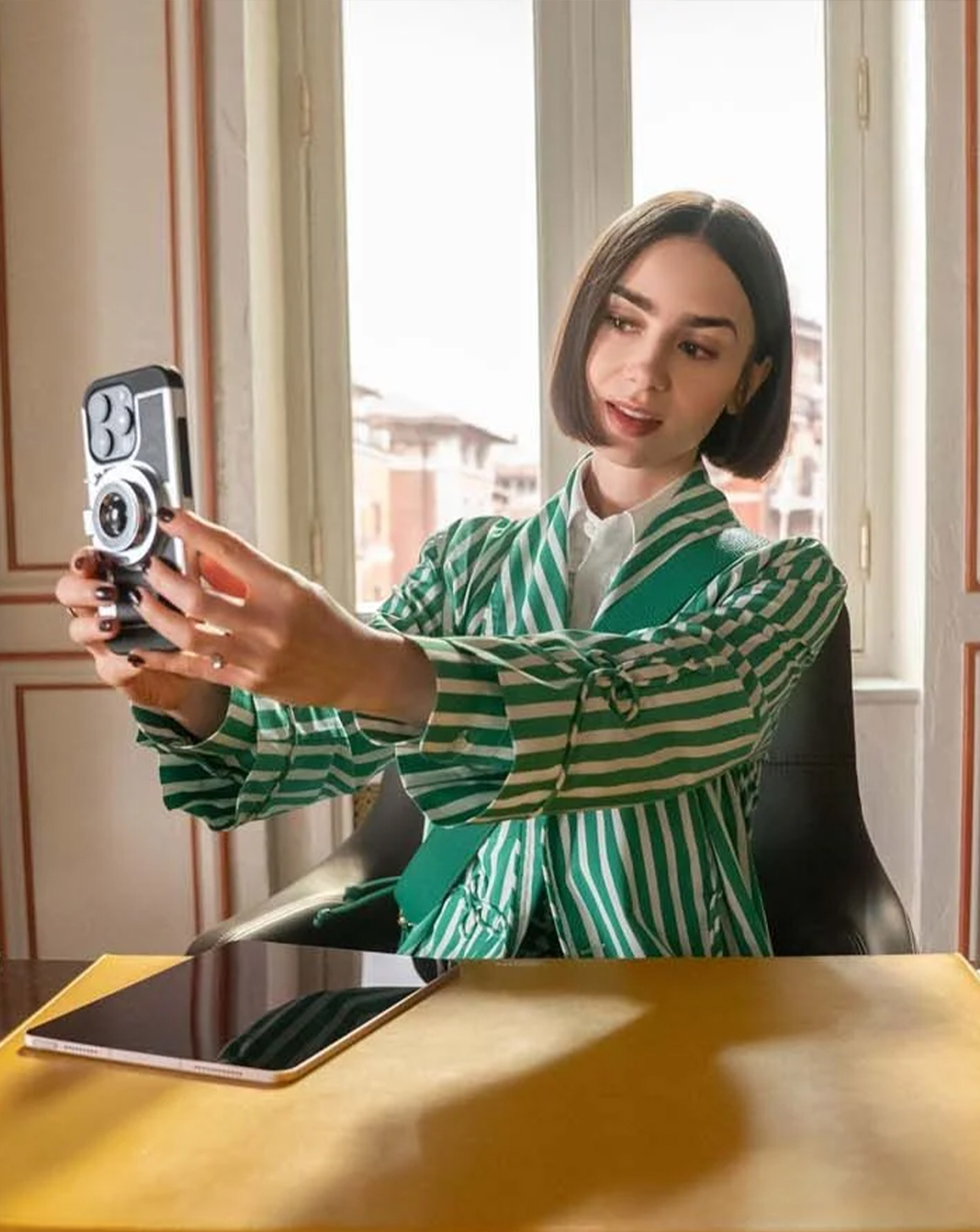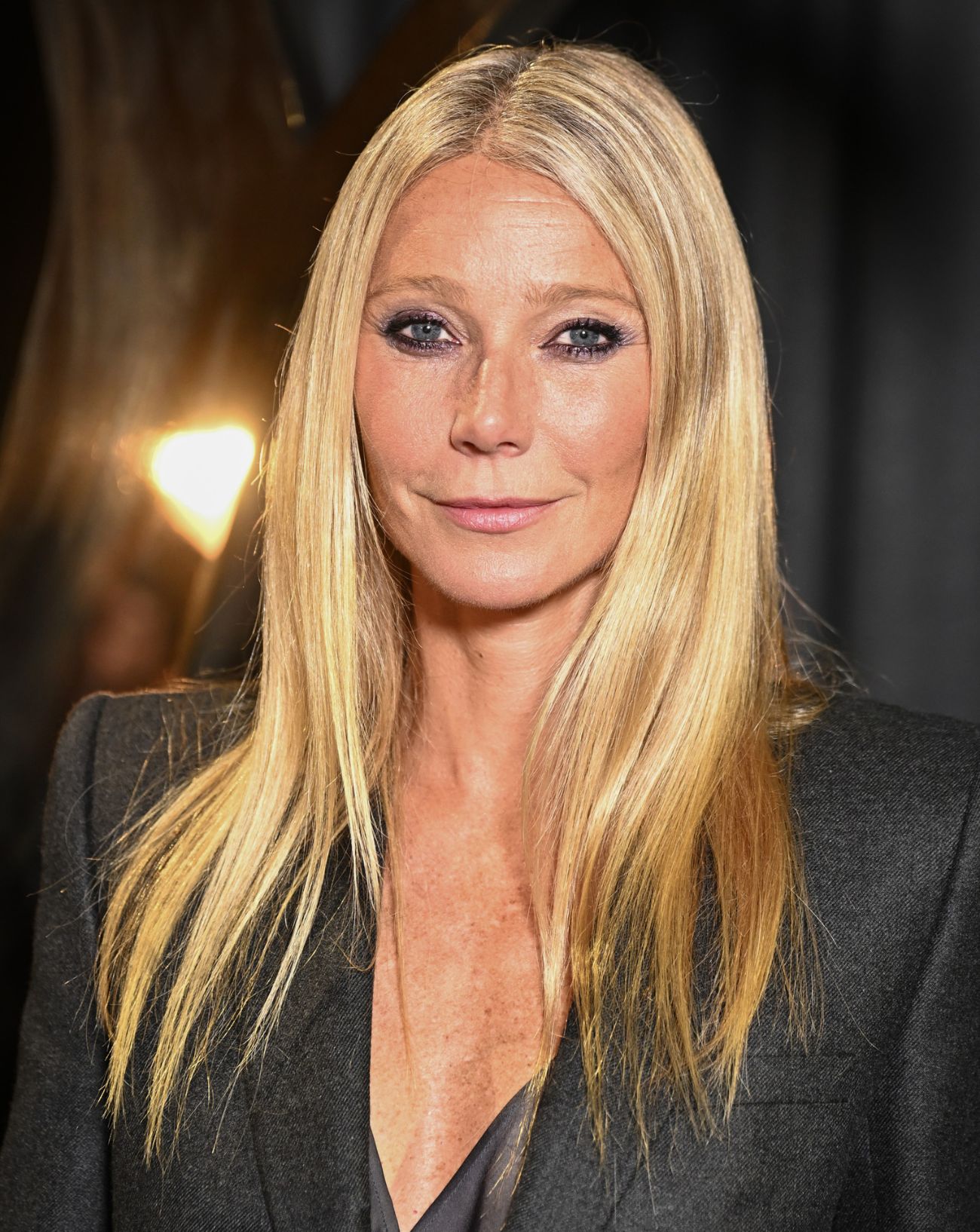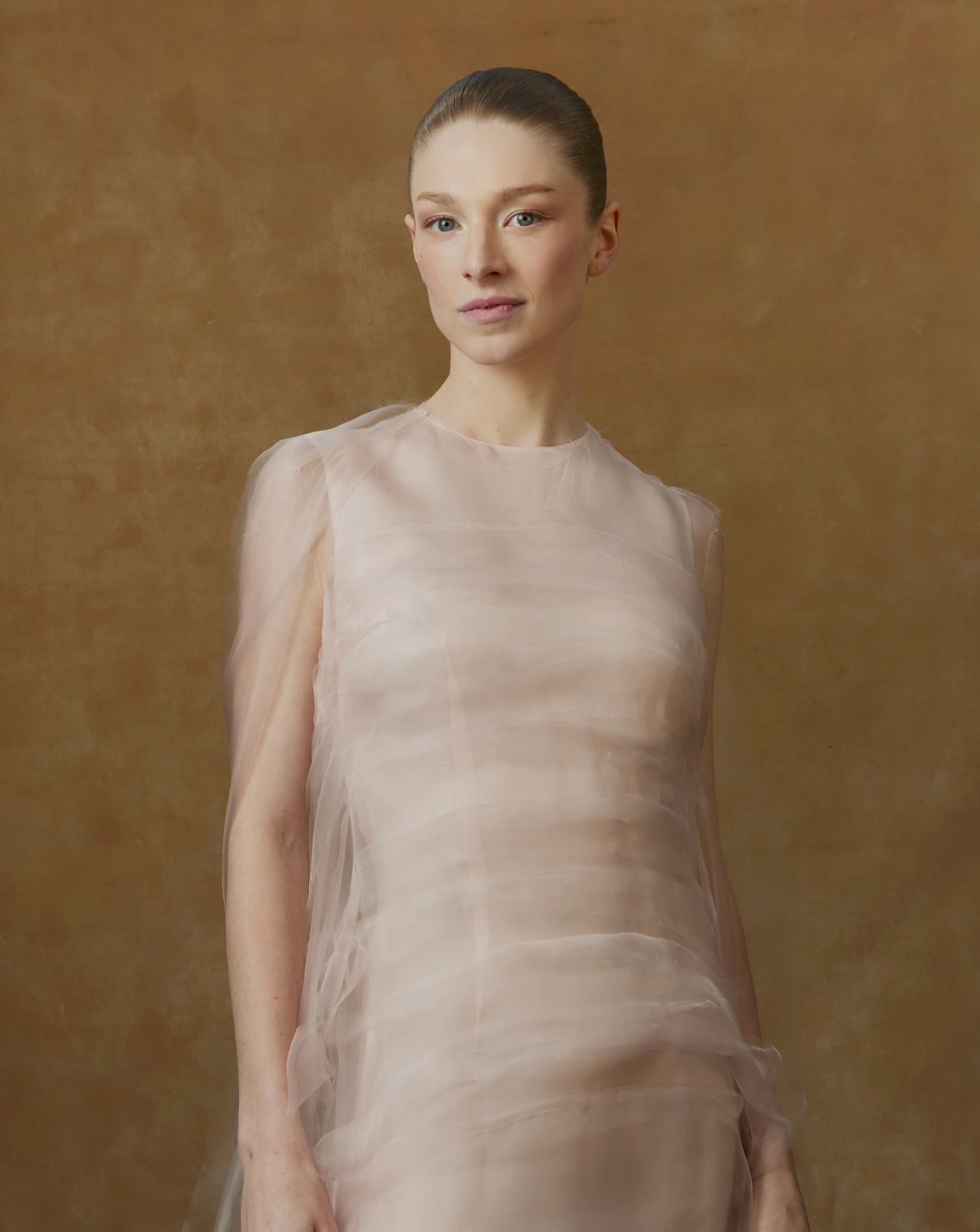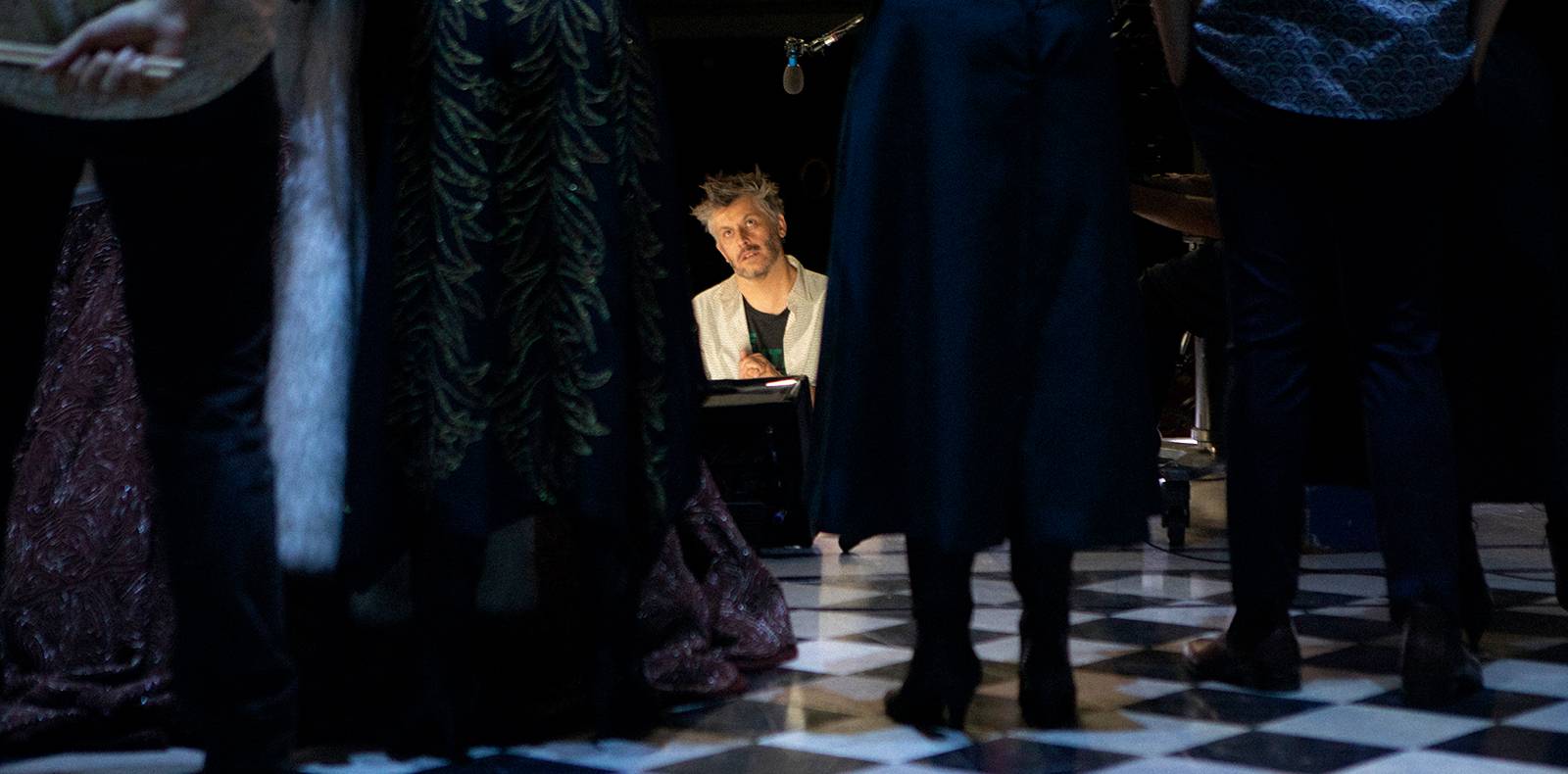
29
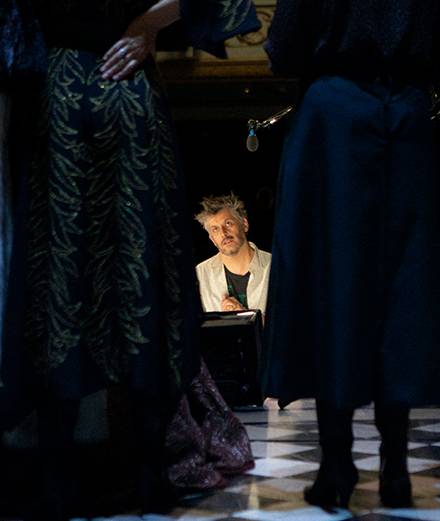
29
Interview with Christophe Honoré: “For ‘Guermantes’, I invented the screenplay from day to day”
French filmmaker Christophe Honoré returns to the big screen with an unusual work, Guermantes. A film shot in extremis from a play adapted from Proust, brutally interrupted by the lockdown. Interview behind the scenes of this very singular project.
Published on 29 September 2021. Updated on 20 June 2024.
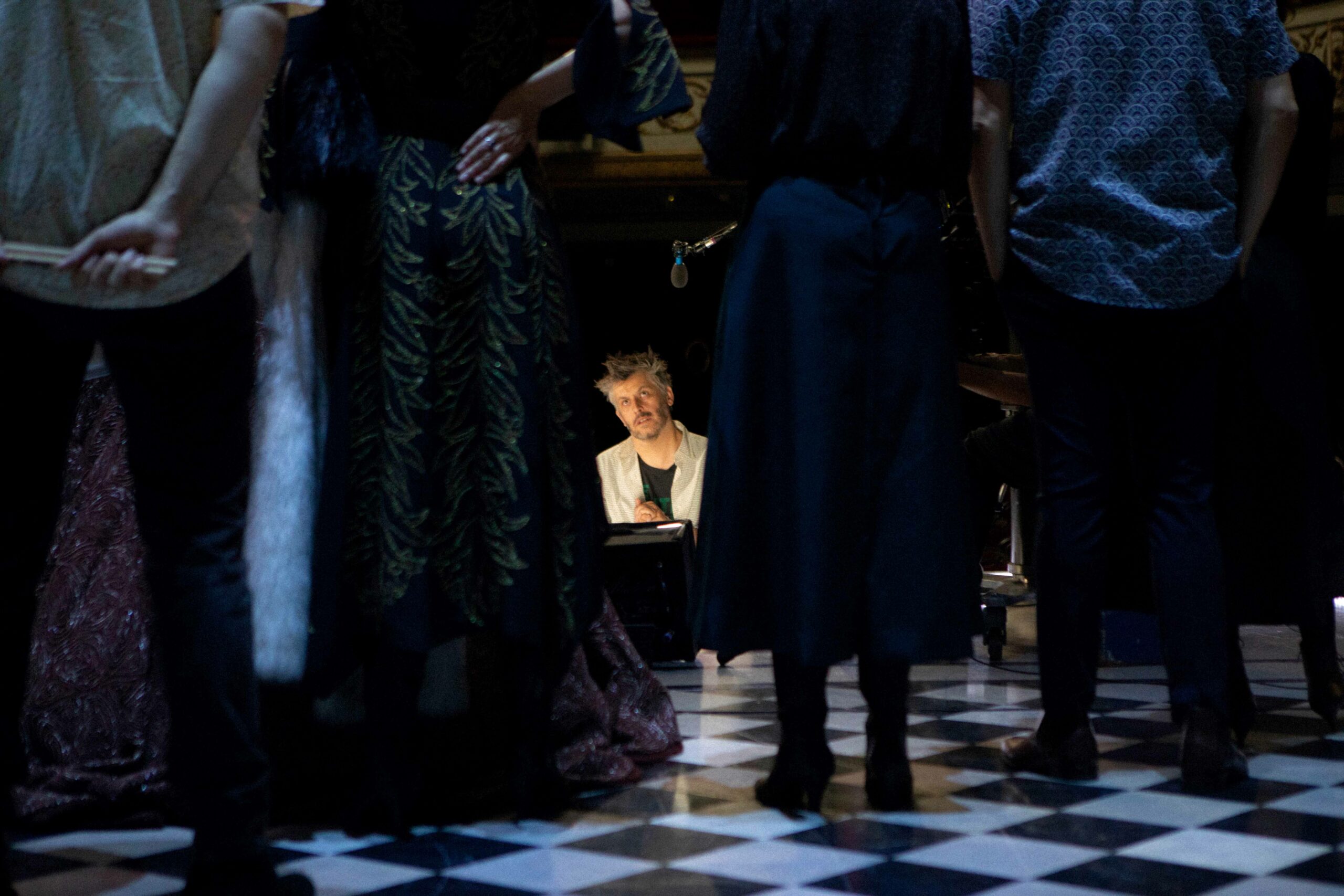
Christophe Honoré’s thirteenth film belongs to the experimental vein of his filmography. Filmed in a few days in the summer of 2020, during the rehearsals of a play inspired by Proust that – almost – did not take place, we find a director in full doubt and a troupe of actors who try to keep fiction alive at all costs, in times of pandemic. The result is exciting and sheds light on the collective moment we are going through. The opportunity for an introspective discussion with the author of Love Songs.
NUMBER: From an aborted show was born a singular film, Guermantes. Tell us.
CHRISTOPHE HONORÉ: The show was finally performed several nights. But, at the time we shot this film, we thought that these few performances would not even take place. Rehearsals had started before the first lockdown and, during the summer, we had the opportunity to meet with the actors, without any certainty about the future. The decision to shoot a film at that time was then taken following a commission from France Télévisions, in collaboration with the Comédie-Française. At that time, the play didn’t exist yet, so I proposed a film without a script, deciding to invent it day by day with the actors.
Had you ever worked without a script?
Only once. Pascal Ramber had suggested that I shoot a film about Gennevilliers, which became Man in the Bath with François Sagat. These experiments are becoming increasingly rare in cinema, where scripts become cages, because the financing depends on them. It’s nice to think that you can make films outside of this pattern of making, writing and validating everything. I thus relieved myself of this aspect, and it is no coincidence that it is related to a theatre project. When I start rehearsals, no text is written. Of course, dramaturgy and documentation work gives rise to notes beforehand, but the story is created during the work with the actors and improvisation phases.
There is a principle in
Guermantes,
which is not to fall into the “
filmed theatre”
“. The camera moves a lot, as close as possible to the characters.
Guermantes is indeed trying to reinvent this form. It’s more of a film about theatre. There are a few rehearsal scenes, but in a register that is above all documentary. But it’s not because no script is written that there is no desire on my part to create scenes. Every day, I proposed situations: we start with a meal, we sleep together at the theatre, etc. Each time it was a collective movement, the opposite of a making of.
In
Guermantes
, another documentary aspect concerns life stopped by confinement and restrictions. We will also remember the time through your film.
The proposal to shoot this film made me happy because I saw it as an opportunity for a diary. That’s why it’s a first-person narrative and why I’m physically involved by playing a role. We had to create an archival document on this moment we are going through. I talked a lot with the actors about what I could film of them, and it revolved around intimacy. They told me anecdotes and I started to invent satellite stories to the main narrative.
In your films, you often recount moments in your life in retrospect, as in
Please, Love and Run Fast
(2018). This time, it’s almost live.
The beginning of the pandemic and the timing of filming were a period of great vulnerability for me. That’s also why asking an actor to come and play my role wouldn’t have made sense. The film draws a kind of self-portrait of the director. I wanted to question this position with Truffaut’s American Night in mind and films that tried to understand this work.
Today, in cinema, the director’s position of omnipotence is being questioned, because too many abuses of power have taken place.
I’ve never really liked, in cinema, the way in which people are subjugated to the director, even though I defend the politics of the authors and the idea that they are indeed the main authors of their films. But I will always be more on the side of Rivette than on the side of Pialat, horizontality against verticality. In any case, this seizure of power embarrasses me. I see how being a director constantly puts me in a position to abuse my power, through the annoyance, the demands, the impression that if I let go everything collapses. Unfortunately, it’s often true, you’re very alone when you make a film.
How is this embodied in the film?
There’s this long scene at the beginning of Guermantes where I talk to the actors who are on the stage while I stay downstairs, on the audience side. At that point, they have the power. It’s a real thing in the theatre: actors hold power over the director. I could do without directing theatre or opera, but I think it’s also an opportunity to have a little less power. [Rires .] Strangely, it allows me to be much more immodest and personal on the themes. I wouldn’t be able to do it so radically in cinema.
What do you think of the state of creation with the pandemic?
During the first lockdown, as filmmakers or writers, we were constantly asked to produce, because we had to keep people busy. We were in a romantic vision of the artists participating in the city. Nevertheless, I refused this idea, because for me, an illness doesn’t create anything. I am sensitive to it, perhaps also because of AIDS and as a homosexual artist. The idea that Hervé Guibert was revealed thanks to AIDS, I hate it. He was a great writer, that’s all. On the other hand, we write with the times and what we are experiencing. Generally speaking, the moment we are going through seems perilous. French cinema is on the verge of sinking. The difficult admissions figures and the streaming habits developed during the lockdown make the situation uncertain. Another way of looking at films is without the cinema. I wonder a lot about the obstinacy that must be had in keeping an idea of the old form.
You express a very Proustian form of regret.
I am not optimistic about the freedom that the new industrial situation offers us. It’s getting harder and harder to make good movies. You are always forced to be cunning, even in a privileged position like mine. When you work for platforms, it’s probably even worse. I’m appalled, including by the things that are talked about in good things. You know series better than I do, but the proportion of what interests me in this field remains tiny. The staging is the same everywhere, like a poor and unified language. It may be the same in cinema, but a little less. In any case, I see the extent to which platforms are subservient to the market, from an economic point of view, but also from an ideological and aesthetic point of view.
Platforms are the market.
We can say that in a postmodern writing it would be possible to play with this: to give the market what it wants while remaining personal. But this state of mind is not exactly mine. I feel like I’m going through a moment of extinction. At the beginning of the 80s, some people were already thinking about it. It is possible that it is part of the very nature of cinema to live as a fragile genre. Maybe that’s what makes it so valuable: it’s never installed, never saved.
Guermantes (2021) by Christophe Honoré, with the troupe of the Comédie-Française. Indoor.






